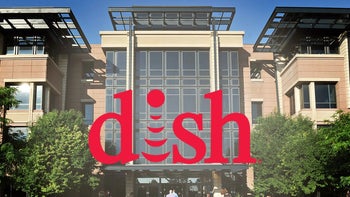DISH switches to AT&T as 'primary' 5G network, relationship with T-Mobile unravels

Oh, the drama! The satellite TV honchos from DISH used to be at the forefront of the T-Mobile and Sprint merger opposition, expressing a number of reservations about reduction in competition and boost of plan prices in front of the FCC.
They then turned on a dime when they were offered the prepaid carriers that T-Mobile and Sprint had to divest. Boost, Metro, Virgin - these were and some of them still are household pay-as-you-go names with millions of subscribers and immediate brand recognition, so DISH immediately lined up for the goods.
The Federal Communications Commission was placated so that T-Mobile and Sprint had a chance for the merger to pass through, and apparently prepaid was the way. Sprint and T-Mobile collectively held more than 40% of the pay-as-you-go market, followed by the carrier-agnostic TracFone with 32%, and Cricket with 25%, and a big chunk of the prepaid market had to be activated by DISH as their own customers.
DISH has a Sprint network problem with T-Mobile
After acquiring Sprint’s prepaid businesses and customers, DISH was given access to the network of the resulting new T-Mobile carrier for no less than seven years, in addition to the opportunity of building its own independent 5G broadband network.
The problem? The network is still under construction, even though DISH has been clamoring for competitive advantages that would put it in more advantageous position against the big three. Well, apparently the honeymoon of DISH with T-Mobile is over, and the Un-carrier is "anticompetitive" as it wants to shut down Sprint's oldie CDMA network that DISH intended to piggyback on earlier than planned.
T-Mobile should've given DISH what it wanted, a Sprint CDMA network sunset as it was promised - for three years - instead of shutting it down next year. "T-Mobile has announced its intention to turn off the Sprint CDMA network—home to millions of Boost subscribers—on January 1, 2022. This is significantly sooner than the three-year migration timeline it previously announced," says DISH, and it has a point.
After all, during the merger negotiations with the FCC, T-Mobile promised to "support Sprint customers who are reliant on LTE and CDMA technologies and to shepherd customers with incompatible handsets through the migration process," then turned on a dime, just like DISH when it was angling for the pre-paid business acquisition by badmouthing the merger.
After all, during the merger negotiations with the FCC, T-Mobile promised to "support Sprint customers who are reliant on LTE and CDMA technologies and to shepherd customers with incompatible handsets through the migration process," then turned on a dime, just like DISH when it was angling for the pre-paid business acquisition by badmouthing the merger.
DISH signs up with AT&T
So, what's an aspiring 5G carrier to do? Well, switch to another network, of course. Wait, what? That's right, DISH will be paying AT&T more than $5 billion over 10 years to gain access to its network and show them T-Mobile robber barons:
DISH announced today the signing of a transformative, long-term strategic Network Services Agreement (NSA) with AT&T, making AT&T the primary network services partner for DISH MVNO customers. Through this agreement, DISH will provide current and future customers of its retail wireless brands, including Boost Mobile, Ting Mobile and Republic Wireless, access to best-in-class coverage and connectivity on AT&T's wireless network, in addition to the new DISH 5G network. The agreement accelerates DISH's expansion of retail wireless distribution to rural markets where DISH provides satellite TV services. AT&T is also providing transport and roaming services as part of the agreement, to support DISH's 5G network.
Not a bad switcheroo, considering that AT&T is already blanketing more than 250 million customers with 5G, albeit of the slower low-band variety. Needless to say, the 7-year deal with T-Mobile still stays, so DISH subscribers will be able to use both networks for the foreseeable future, it's just that AT&T will apparently be the "primary" network.










Things that are NOT allowed: